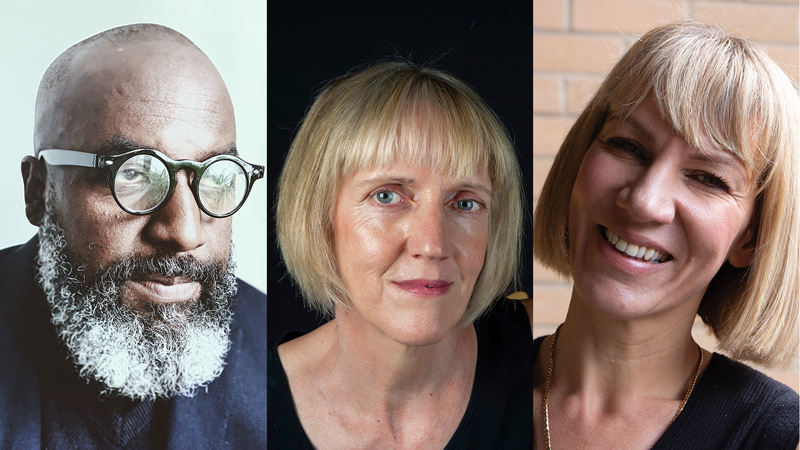JEAN SPRACKLAND TO CHAIR 2022 T. S. ELIOT PRIZE JUDGING PANEL

The T. S. Eliot Foundation is delighted to announce the judges for the 2022 Prize. The panel will be chaired by Jean Sprackland, alongside Hannah Lowe and Roger Robinson
The 2022 judging panel will be looking for the best new poetry collection written in English and published in 2022. The prize is unique in that entrants are judged by their peers; the panel always consists of established poets.
Jean Sprackland said:
The T. S. Eliot Prize is a vibrant and vital part of our poetry culture, and it’s an honour to act as chair of judges this year. Of all the pleasures involved, there are two I’m particularly excited about. First, the time spent reading, and the view that will offer of the poetry being written now, in all its breadth and variety. And second, the joy of sitting down with Hannah and Roger – two poets I greatly admire – and sharing our discoveries together.
The call for submissions will go out in June, with the submission window closing at the end of July.
Following the retirement of Chris Holifield at the end of June, the T. S. Eliot Foundation is also pleased to announce that Mike Sims has been appointed as Director of the T. S. Eliot Prize as from 1 June.
Mike Sims said: “I’m delighted to be taking on the role of managing such a celebrated and successful award as the T. S. Eliot Prize. It has had an unerring knack of bringing the very best poetry collections to the fore since it was founded in 1993 by the Poetry Book Society, and now under the careful guardianship of the T. S. Eliot Foundation. It has been in excellent hands throughout the decades, thanks to Chris Holifield. I look forward to following her example in the years ahead.”
Chris Holifield said: “It has been a been a privilege and a pleasure to run the T. S. Eliot Prize for twenty years, fourteen of them for the Poetry Book Society and six under the aegis of the T. S. Eliot Foundation, and to play a part in its growth in influence and prestige.”
The 2022 T. S. Eliot Prize Shortlist Readings will take place on Sunday 15 January 2023 at Southbank Centre’s Royal Festival Hall (tickets on sale later this year). The shortlist readings are the largest annual poetry event in the UK.
The winner of the 2022 Prize will be announced at the Award Ceremony on Monday 16 January 2023. The T. S. Eliot Prize continues to be the most valuable prize in British poetry – the winning poet will receive a cheque for £25,000 and the shortlisted poets will be presented with cheques for £1,500.
Last year’s winner was Joelle Taylor’s C+nto and Othered Poems and the judges were Glyn Maxwell (chair), Caroline Bird and Zaffar Kunial.
For more information on this year’s judges visit the T. S. Eliot Prize website at http://tseliot.com/prize/the-t-s-eliot-prize-2022/judges/.



